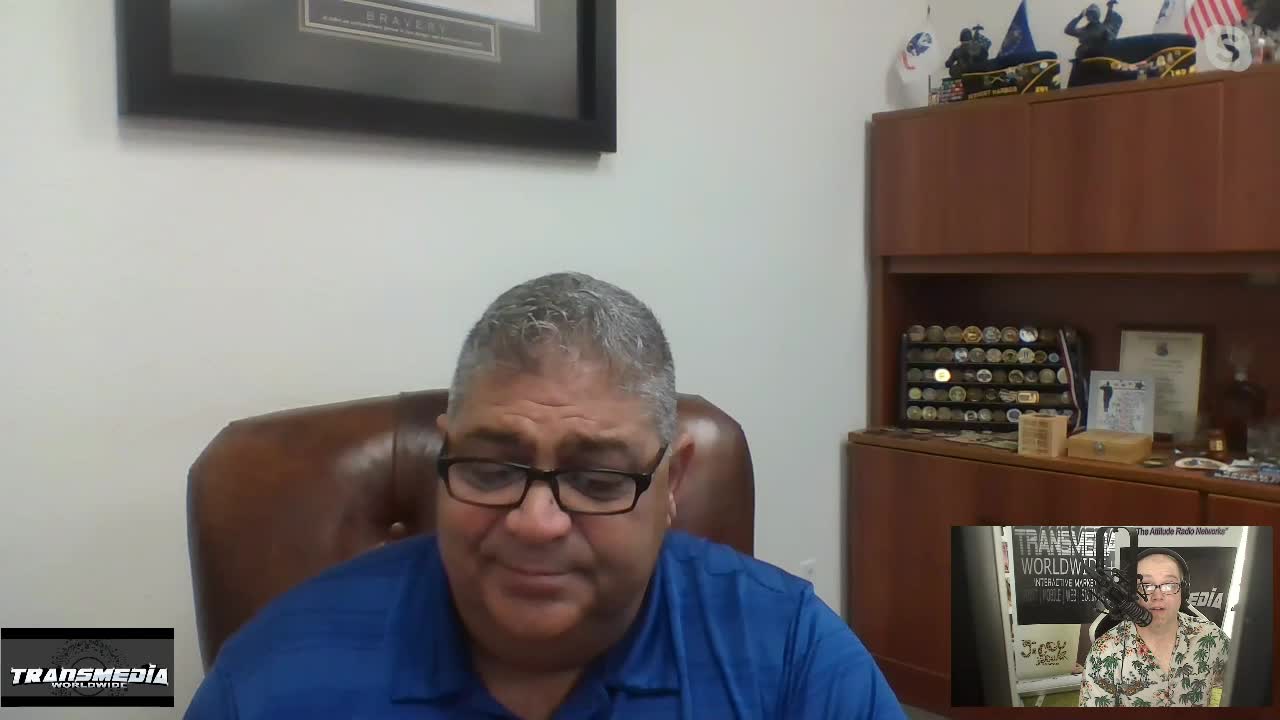Premium Only Content

VEND | Interview w/James Lowe | The Jiggy Jaguar Show
California has enacted a series of new laws to confront the Golden State’s staggering housing crisis. However, a new approach must be taken to ensure these developments take off the ground, property expert Nick Saifan, Chairman of Vendaval Corp. advises.
(Huntington Beach, Calif.) October 26, 2021 - California has become the epicenter of America’s homeless crisis. Venice Beach, which attracts 10 million visitors a year became a massive homeless camp this summer. (1) More than 1,600 homeless people set up tents and shelters amid a community of 40,000 residents. (2) Venice Beach is hardly the only community to see the effects of the crisis. A new federal report shows there are more than 160,000 homeless people in California. (3) That number is not surprising given that the median sales price for a single-family home in California is $811,170, up 21.7% since July of last year. (4)
A collection of progressive housing laws was signed into law in California last month that are designed to increase housing density and update zoning rules so developers can build more housing. But building expert Nick Saifan, Chairman of Vendaval Corp., warns that the “usual” way of doing business could derail a golden opportunity to help residents desperate for a place to live. The laws allow for greater density in residential areas and create a faster path for building single-family communities. The laws could help ease the state’s housing crisis.
“Everyone on both sides of the political fence should support the new laws,” Saifan says. “Even with the new laws, there is an urgent need for the government to expedite permits, to help developers acquire material and workers as there is a shortage of both. But, mostly to ensure that the new housing goes to the people who are hurting right now and can’t afford a place to live.”
The unprecedented need for new residential options and laws to bring change pushed Gov. Gavin Newsom to sign several measures on Sept. 16. The plan is to expand housing production, streamline housing permitting, and increase density to create more inclusive and vibrant neighborhoods. (5)
Below is a summary of the primary legislation:(6)
Senate Bill 8 extends the provisions of the Housing Crisis Act of 2019 through 2030. The intent is to jumpstart more housing production by accelerating the approval process for housing projects, curtailing local governments’ ability to downzone, limit fee increases on housing applications and implement accountability provisions.
Senate Bill 9, or the California Housing Opportunity and More Efficiency (HOME) Act, allows a property owner to split a single-family lot into 2 lots and place up to 2 units on each newly created lot.
Senate Bill 10 establishes a procedure for local governments to access a streamlined zoning process for new multi-unit housing near transit or in urban infill areas. The legislation gives local governments another tool to voluntarily increase density and provide affordable rental opportunities to more areas of California.
Assembly Bill 1174 amends the existing approval process for housing development in jurisdictions that have not yet made enough progress towards their allocation of their regional housing needs.
Supporters of the laws, say the measures will keep California affordable, and open additional, and affordable, housing options. However, the laws are opposed by more than 200 communities, which resist changes in their neighborhoods for several reasons, including rent control, traffic density, and stress on the infrastructure, to name a few.
How to Solve the Crisis
Saifan has been working to address California’s housing problems for 14 years. He is encouraged by Newsom’s agenda but contends a builder-friendly system will ease the challenging housing situation in California. In fact, the governor’s new law places a project Saifan has been trying to develop for several years into the category of Housing Element, which means that he is able to upzone the project without the need for a vote from the local government. The Moreno Valley project will offer affordable housing to hundreds of Californians, as well as offering retail and social services space. Through grants, a portion of the rents, and retail sales, the Moreno Valley will be self-sustaining and not cost taxpayers a single cent—and put up to $2 million a year in the city’s coffers.
However, one way of solving the problem, according to Saifan, is by privatizing the housing crisis. “By privatizing housing, you can take steps to get projects off the ground more quickly,” Saifan says. “Let the builders build. The role of the government needs to be to expedite permits, environmental impact studies, and all the necessary steps it takes to get a project going.”
One way of achieving this, Saifan notes, is by creating a cooperative push that involves governments, citizens, and responsible builders to address the housing issue. The government alone cannot solve this situation, says Saifan.
“I believe in a joint entity so that all the governments could work together to help make this happen, Saifan says. ”If you privatized, it would really work and truly help those in need of housing. Allow developers to build more. But it will take all of us: the government, the builders, and the community.”
About Vendaval Corporation
Nick Saifan served in the U.S. military for 24 years, including time stationed in Riverside County, CA. He experienced firsthand the difficulties of transitioning from military life to civilian life and, as a co-founder of a community-based nonprofit, he watched the difficulty in getting donations increasing year by year. Today, he’s putting his business savvy where his heart is. He sees a community that, like many, has struggled to evolve with a changing employment picture in the region. Today Vendaval Corporation visualizes a sustainable business structure creating the opportunity for helping those in need with successful community-based programs. The differentiator in the communities he visualizes is self-sufficient affordable housing in a mixed-use development that offers on-site programs for veterans, youth, education, childcare, on-the-job training, and job placement. These programs begin even before ground is broken. Rounding out the community are retail outlets such as bakeries/coffee shops, dry cleaning shops, a paid-membership fitness center, and financial institution. For more information visit http://www.vendavalcorp.com/
1. Associated Press; “Venice Beach Becomes Flashpoint In LA’s Homeless”; Last updated July 29; KTLA 5: ktla.com/news/local-news/venice-beach-becomes-a-flashpoint-in-l-a-s-homeless-crisis/
2. Associated Press; “Venice Beach Becomes Flashpoint In LA’s Homeless”; Last updated July 29; KTLA 5: ktla.com/news/local-news/venice-beach-becomes-a-flashpoint-in-l-a-s-homeless-crisis
3. Nichols, Chris; “California’s Homeless Population Rose 7% To 161,000 Ahead Of The Pandemic, New Report Finds”; 19 March 2021; CapRadio; capradio.org/articles/2021/03/19/californias-homeless-population-rose-7-to-161000-ahead-of-the-pandemic-new-report-finds/
4. Kiszla, Cameron; “Newsom Signs Housing Bills That Could Reduce Single-Family Zoning In California”; Last updated Sept 17; KTLA 5: ktla.com/news/california/newsom-signs-housing-bills-that-could-reduce-single-family-zoning-in-california
5. Office of Gov. Newsom; “Governor Newsom Signs Historic Legislation to Boost California’s Housing Supply And Fight The Housing Crisis”; Last Updated Sept 16; gov.ca.gov/2021/09/16/governor-newsom-signs-historic-legislation-to-boost-californias-housing-supply-and-fight-the-housing-crisis.
6. The National Law Review; “California Enacts New Legislation To Combat Growing Housing Crisis, But Not Without Controversy”; Last Updated Sept. 20; natlawreview.com/article/california-enacts-new-legislation-to-combat-growing-housing-crisis-not-without.
-
 20:16
20:16
The Jiggy Jaguar Program
8 days agoRoger Homefield: Trump's Budget Blunder - How MAGA and Elon Musk Tanked the Vote
321 -
 1:45:59
1:45:59
Spittin' Chiclets
1 day agoCanadian Chokejob - Game Notes Live From Chicago - 12.28.2024
242K31 -
 9:18
9:18
Space Ice
22 hours agoThe Guyver - Alien Bug Suits, Exploding Dragons, & Mark Hamill - Weirdest Movie Ever
151K25 -
 12:46
12:46
RealReaper
2 days ago $8.63 earnedMufasa is a Soulless Cash Grab
88.5K9 -
 5:14:24
5:14:24
FusedAegisTV
23 hours agoWelcome to The King of Iron Fist Tournament! \\ TEKKEN 8 Stream #1
153K3 -
 DVR
DVR
Bannons War Room
1 year agoWarRoom Live
102M -
 5:42:36
5:42:36
FreshandFit
1 day agoLive X Censorship For Opposing Immigration?!
273K123 -
 1:08:16
1:08:16
Tactical Advisor
1 day agoNEW Budget Glocks | Vault Room Live Stream 011
140K11 -
 16:30
16:30
SNEAKO
1 day agoNO FRIENDS IN THE INDUSTRY.
103K73 -
 6:19
6:19
BlackDiamondGunsandGear
1 day agoHow Fat Guys can Appendix Carry
121K16